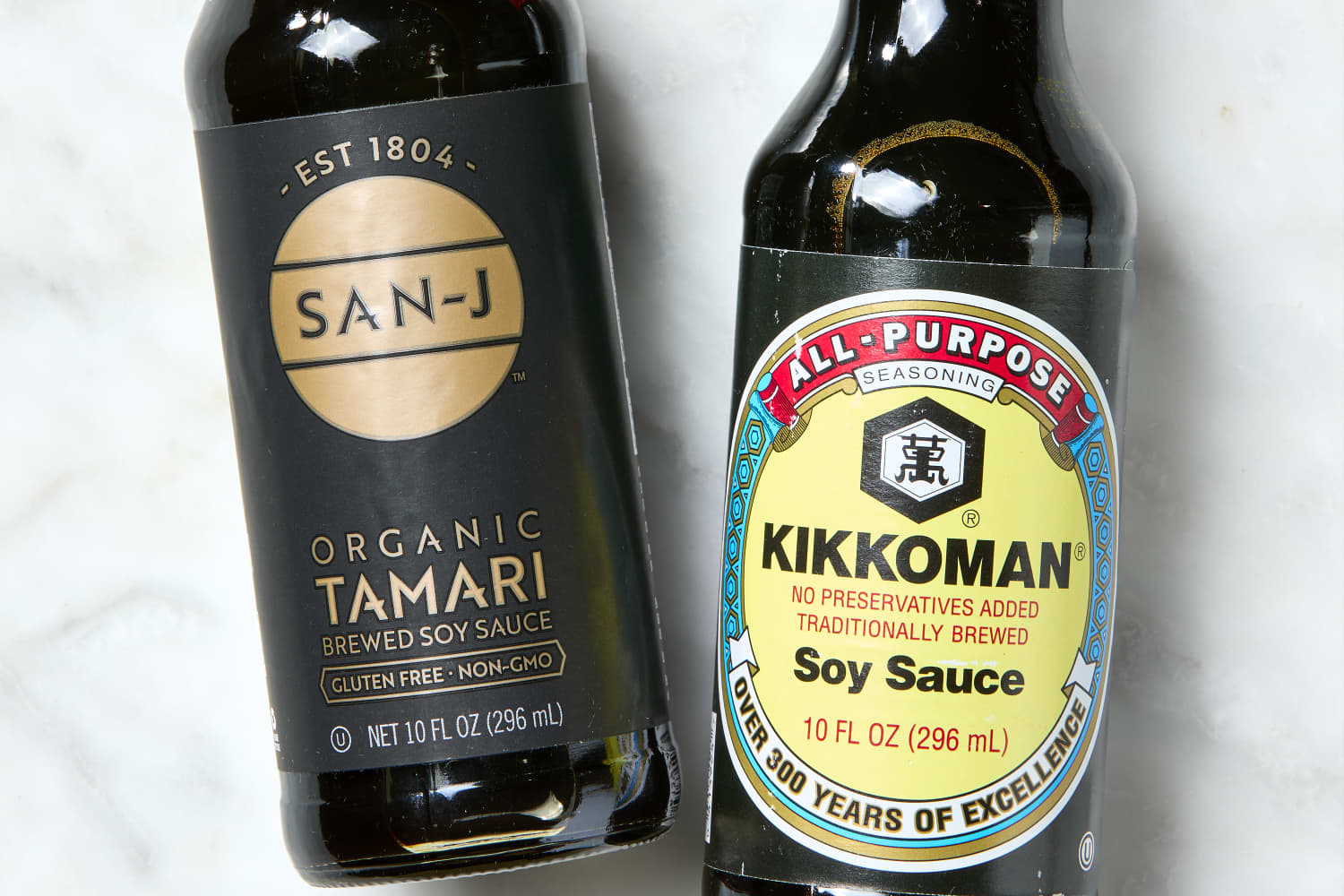You may have noticed bottles of sauce in the grocery store labeled “tamari” on the shelf next to the soy sauce. Or perhaps you’ve seen a recipe that calls for “soy sauce or tamari” in the ingredient list. Maybe you have a bottle of tamari in your pantry that you use interchangeably with soy sauce. In any, or all, of these situations, you might wonder, what’s the real difference between these two sauces?
Though they look the same, these popular condiments have got a few distinctive characteristics, from their ingredients, to their cultures of origin. Here, we break down the similarities and differences between these two sauces and which to use when.
Tamari is a Japanese sauce made from soy and rice. It’s actually a byproduct of miso paste — it’s the liquid that is squeezed out when miso is pressed. Making tamari involves a longer fermentation time than soy sauce which results in a sauce with a darker color and a less salty, more umami-forward flavor. It’s also slightly thicker than soy sauce.
Soy sauce originated in China over 2,000 years ago and is a byproduct of fermented soybeans and wheat. The world of soy sauce is huge and there are many varieties, with different flavor profiles that hail from countries all over Asia. Two of the most common types of soy sauce you might find on a grocery store shelf are Chinese soy sauce and Japanese shoyu.
Can You Swap Tamari and Soy Sauce?
Yes. Soy sauce and tamari have similar, but not identical flavors. Tamari is thicker than soy sauce with a slightly stronger flavor, so keep that in mind when swapping one for the other. Tamari is extremely versatile and can be used just about anywhere you would use an all-purpose soy sauce.
Though it’s a popular gluten-free substitution for soy sauce, some brands may contain wheat, so be sure to check the manufacturer’s label.
A version of this story was first published on November 20, 2023 by Kelli Foster
